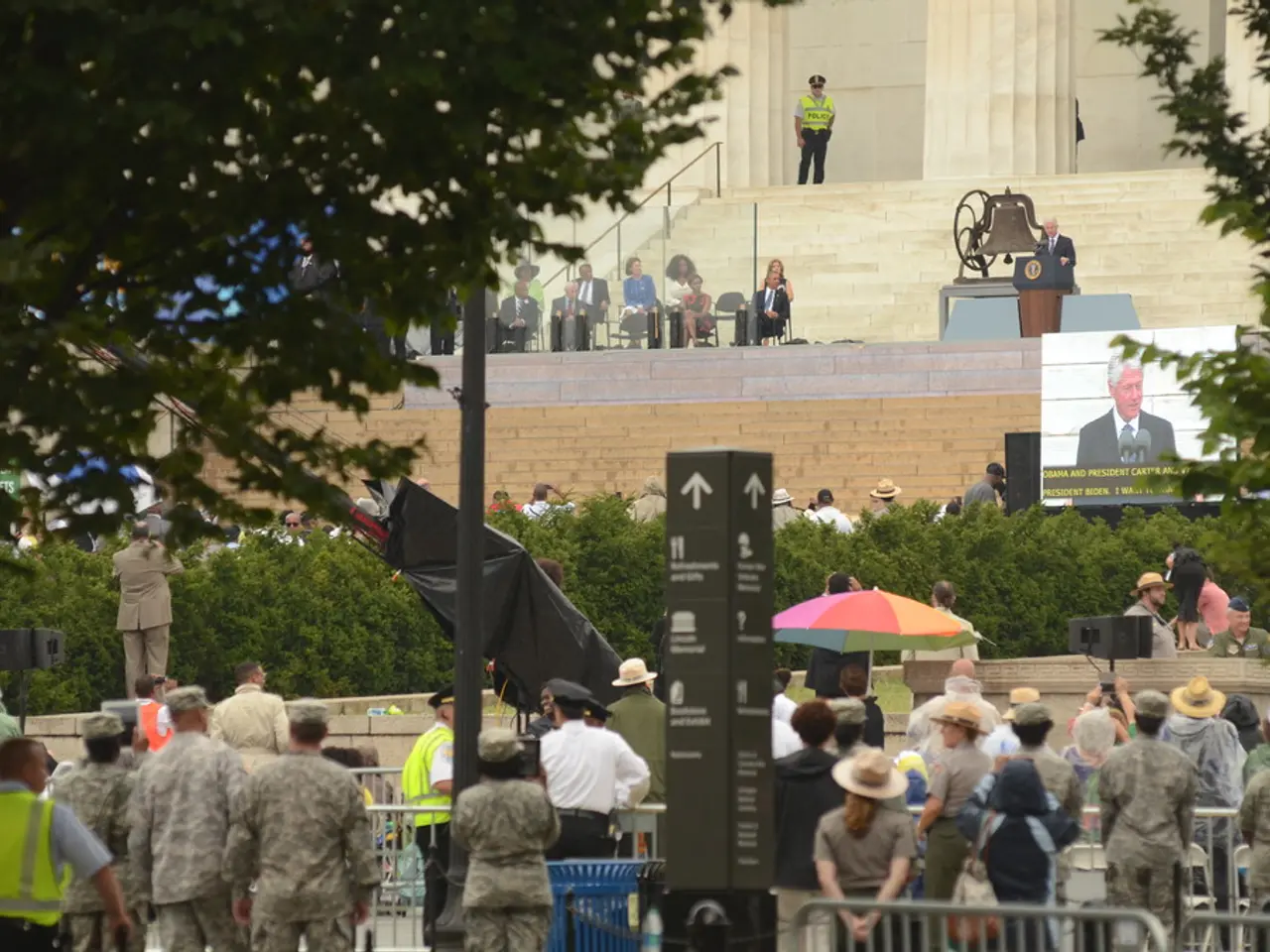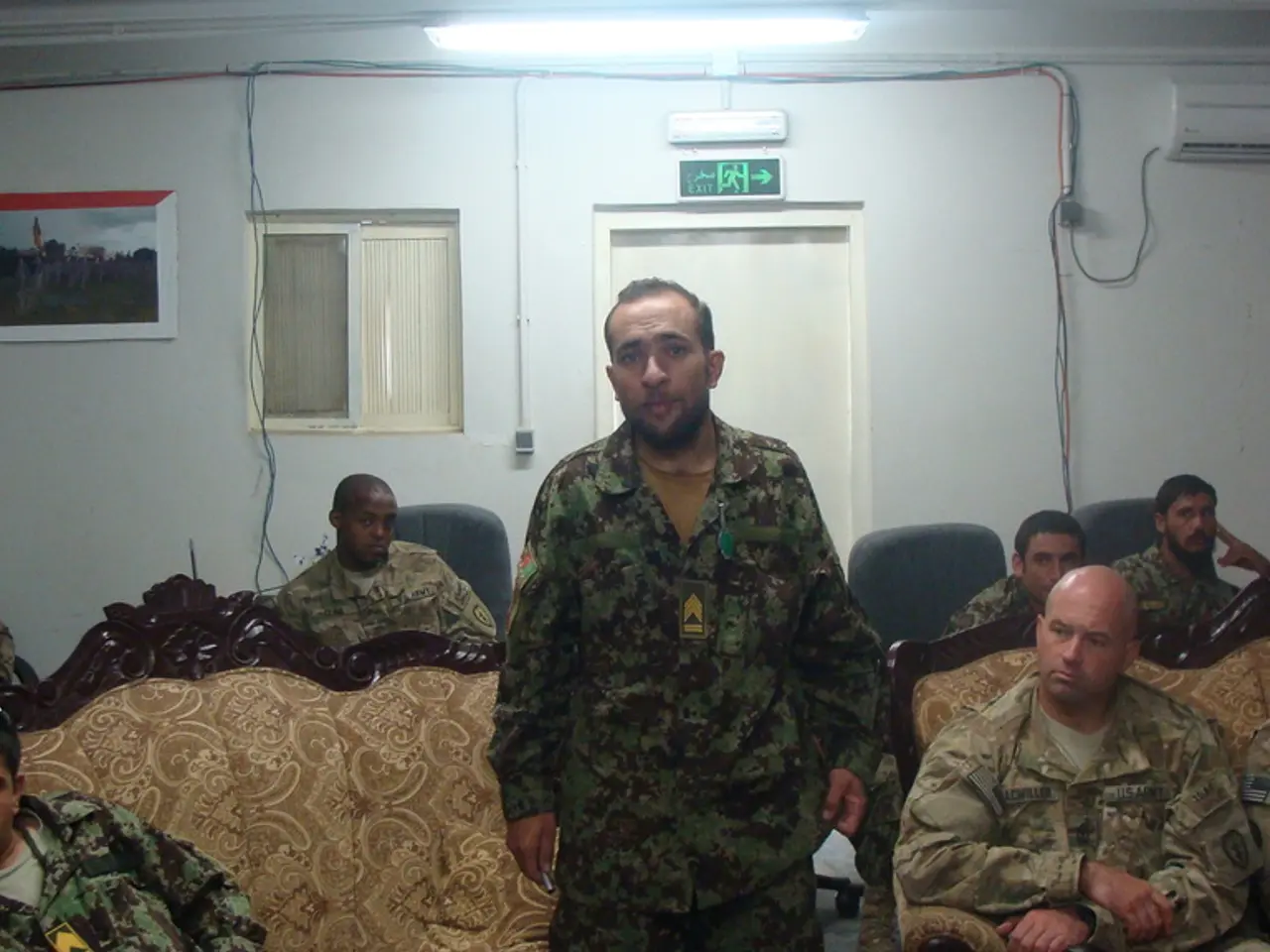Senator Rubio proposes personal discussions with Iran, yet doubts persist among certain congressional members
Let's Talk about the Latest: US Trying to Get Iran Back to the Negotiation Table
After six days of strikes on Iran's nuclear facilities, top White House officials are now focusing on convincing Tehran to sit down and talk, though the strategy for this isn't crystal clear yet. Speaker Mike Johnson said the US wants Iran to engage in straightforward, one-on-one negotiations, not through third parties or other countries.
Secretary of State Marco Rubio conveyed a similar message to lawmakers, stating his preference for direct talks with Iranian leadership. However, several House members expressed doubt about the plan, with House Foreign Affairs Committee chairman Rep. Michael McCaul labeling himself as "skeptical."
What's the Plan for Trump with Iran? Unfortunately, no one can give a clear answer on that. Rep. Jim Himes, the top Democrat on the House Intelligence Committee, revealed that no one from the administration suggested there were any ongoing diplomatic talks right now.
Trump himself added to the confusion when he mentioned the possibility of future military strikes if Iran continues working on uranium enrichment. Additionally, he chastised Iran's leader for failing to thank him for sparing his life and revealed he had previously considered lifting sanctions to help Iran but later decided against it due to Ayatollah Ali Khamenei's recent video message boasting about victories over Israel and the US.
Uncertainty and QuestionsThe briefing by top Trump administration officials to House lawmakers left many with more questions about the US decision to strike in Iran, including the lack of consultation with Congress, and the strategy moving forward. House Minority Leader Hakeem Jeffries called it an unenlightening briefing, stating there are many unanswered questions left.
Inside Congress, the strikes on Iranian facilities have created a heated dispute, with many Democrats furious about the lack of official warning and some even suggesting it warranted impeachment. Despite this tension, the briefing in the Capitol was described as professional and collegial with no outbursts from either party.
Clear About the Mission Reps. Greg Murphy and Michael McCaul clarified that the US mission was not meant to remove or secure nuclear material in Iran. While most of the uranium still remains at Iran's nuclear facilities, they noticed there's enriched uranium moving around and emphasized there needs to be a full accounting of all enriched uranium present.
Several lawmakers, including Democrat Bill Foster and Jason Crow, expressed concerns about the mismatch between the information given during the briefing and what they had been told previously about Iran's capabilities and intent. They questioned the administration on the status of Iran's nuclear inventory and its implications for the time it would take for Iran to develop its first nuclear weapon.
Former House Speaker Nancy Pelosi shared her skepticism regarding the extent of damage caused by the strikes and questioned whether Iran's nuclear facilities still contained enriched uranium. Despite claims that Iran's nuclear sites had been "obliterated," Pelosi stated that Iran cannot possess a nuclear weapon.
Further Reading: Details on Secret Diplomatic Efforts to Re-initiate Iran Talks
In early 2025, under President Trump, the US reinstated a tough pressure strategy to prevent Iran from developing nuclear weapons and counter its regional influence. Diplomatically, talks took place in Muscat, Oman, where key proposals were made, such as Iran temporarily reducing uranium enrichment and freezing regional tensions in exchange for sanctions relief, but negotiations remain complex due to Iran's resistance to meeting certain conditions.
Despite President Trump's recent aggressive actions, his administration has shown an interest in diplomacy, aiming to engage Iran in politics and policy-and-legislation regarding its nuclear program. In fact, secret diplomatic efforts were made, as revealed in the article, "Further Reading: Details on Secret Diplomatic Efforts to Re-initiate Iran Talks."
The focus of these talks has been war-and-conflicts and general-news, as both parties seek resolution to avert a potential military conflict. However, the success of these discussions is uncertain, given the skepticism expressed by some lawmakers and the lack of clear direction from the administration.







